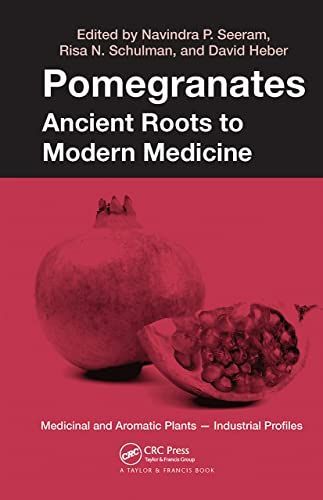
Pomegranates Ancient Roots to Modern Medicine
While one may not find ancient studies that substantiate the pomegranate's curative and preventive qualities, the exalted status of this fruit goes back as far as the history of agriculture itself. Allusions to the pomegranate are readily found in the oldest cultures of the Indus Valley, ancient China, and classical Greece, as well as in the Old Testament. To modern scientists, the biochemistry of the pomegranate is as equally fascinating as its storied place in literature and religion. Providing an unprecedented compilation of scientific information, Pomegranates: Ancient Roots to Modern Medicine offers an exploration of the biochemistry, health effects, and cultivation of the pomegranate that is as authoritative as it is unparalleled. Featuring the contributions of a multidisciplinary and international team of prominent researchers, it presents the latest findings on the potential human health benefits of this exceptionally polyphenol-rich fruit. As the research indicates, the physiological effects of pomegranate juice constituents are remarkable in their preventive potential against two of the major chronic diseases of aging - heart disease and cancer. Many of the pioneering researchers responsible for initiating our newfound fascination with pomegranates discuss its biochemistry, detailing the location and action of the phytochemicals found in the fruit's flesh, peels and seeds. They present evidence of the pomegranate's impact on heart disease, including its ability to enhance nitric oxide production in endothelial cells. They also reveal the significant antiproliferative and proapoptotic effects attributed to the pomegranate in battling several different types of cancer cells, as well as its ability to retard tumor growth in animals. Recognizing that the pomegranate is only as valuable as it is available, the editors include a substantial section on commercialization and another on plant growth and improvement. These additions make this text as uniquely essential for botanists and agriculturists as it is for nutritionists, cancer researchers, natural product chemists, botanical supplement producers and consumers, and pharmacognosists seeking to evaluate both the pomegranate's legacy and future as a powerful natural healing agent.